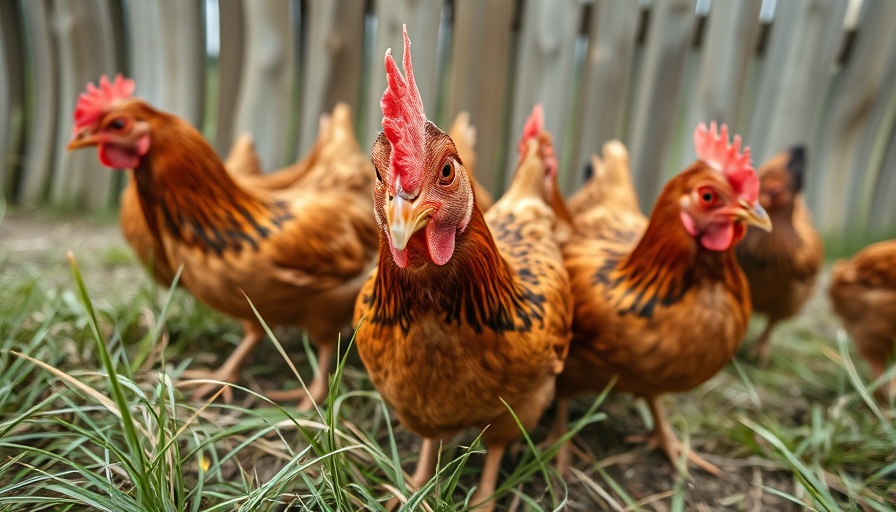
Understanding the Risks: Should You Worry About Your Neighbor's Chickens?
The rise in backyard chicken ownership has surged since the onset of the COVID-19 pandemic, driven by rising grocery prices and the allure of farm-fresh eggs. This trend presents new public health concerns, particularly in light of recent bird flu outbreaks in the U.S. Reports indicate that while backyard chickens only make up a fraction of the poultry market, they have contributed significantly to the spread of highly pathogenic avian influenza (HPAI).
The Impact of Bird Flu on Public Health
The H5N1 virus, responsible for the current bird flu outbreaks, has led to significant disruptions across egg and poultry production. According to recent data, the Centers for Disease Control and Prevention (CDC) note that the risk of transmission from birds to humans remains low. However, one death linked to a backyard chicken owner has raised alarms among health officials.
Experts like Samuel Scarpino, a director of pathogen surveillance, advise caution for those in proximity to backyard flocks. "Backyard birds account for 37% of confirmed cases of bird flu in recent months," he states, underscoring the importance of vigilance among owners and neighbors alike.
Precautions for Backyard Chicken Owners
If you are considering obtaining chickens yourself or already have them, implementing strict biosecurity measures is essential. This includes wearing masks and gloves while handling your birds, regularly cleaning the coop, and reporting any unusual health signs in your flock. The CDC also highlights that disease transmission is often limited to people with direct contact with infected avian species.
Financial and Emotional Considerations
For many, raising chickens can not only provide a fresh source of eggs but can also offer emotional benefits, including companionship and a sense of connection to nature. However, the fear of bird flu may lead to stress among neighbors concerned about their well-being or the impact on local poultry. Balancing the joy of chicken-keeping with responsible practices is key to maintaining both public health and neighborhood harmony.
The Future of Urban Poultry Keeping
In light of these challenges, aspiring chicken owners must weigh the benefits against potential health risks. As avian flu strains continue to evolve, staying informed about the latest research and recommendations from public health agencies will be vital for the future of suburban and urban poultry rearing. Keeping abreast of developments in poultry health and biosecurity can mitigate risks while allowing individuals to enjoy the myriad rewards of raising chickens.
Ultimately, knowing and understanding the risks associated with backyard chickens is essential for both current and prospective chicken owners. Awareness not only fosters conscientious management practices but also reassures neighbors about their safety.
 Add Row
Add Row  Add
Add 




 Add Row
Add Row  Add
Add 



Write A Comment